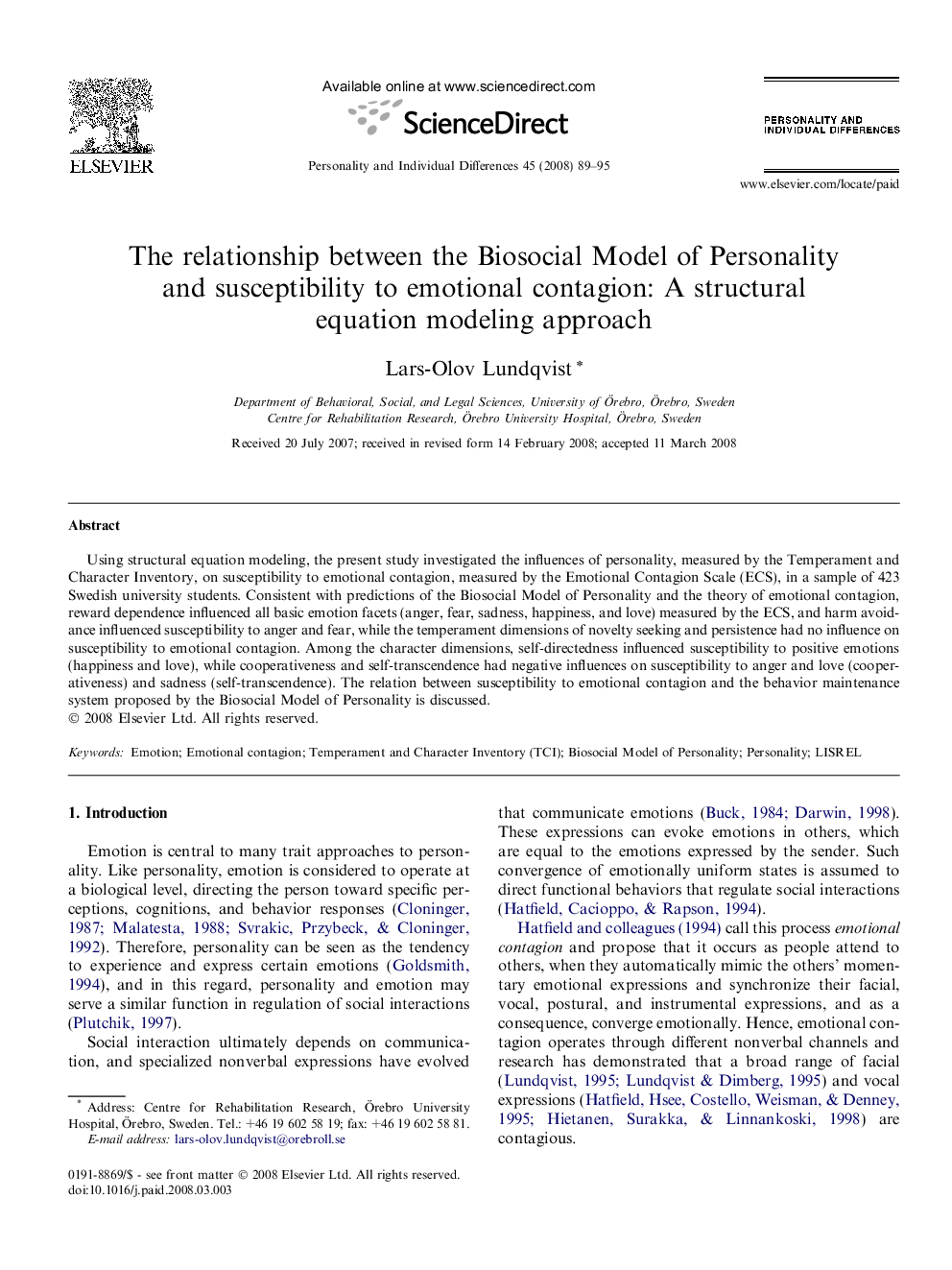| Article ID | Journal | Published Year | Pages | File Type |
|---|---|---|---|---|
| 892742 | Personality and Individual Differences | 2008 | 7 Pages |
Using structural equation modeling, the present study investigated the influences of personality, measured by the Temperament and Character Inventory, on susceptibility to emotional contagion, measured by the Emotional Contagion Scale (ECS), in a sample of 423 Swedish university students. Consistent with predictions of the Biosocial Model of Personality and the theory of emotional contagion, reward dependence influenced all basic emotion facets (anger, fear, sadness, happiness, and love) measured by the ECS, and harm avoidance influenced susceptibility to anger and fear, while the temperament dimensions of novelty seeking and persistence had no influence on susceptibility to emotional contagion. Among the character dimensions, self-directedness influenced susceptibility to positive emotions (happiness and love), while cooperativeness and self-transcendence had negative influences on susceptibility to anger and love (cooperativeness) and sadness (self-transcendence). The relation between susceptibility to emotional contagion and the behavior maintenance system proposed by the Biosocial Model of Personality is discussed.
